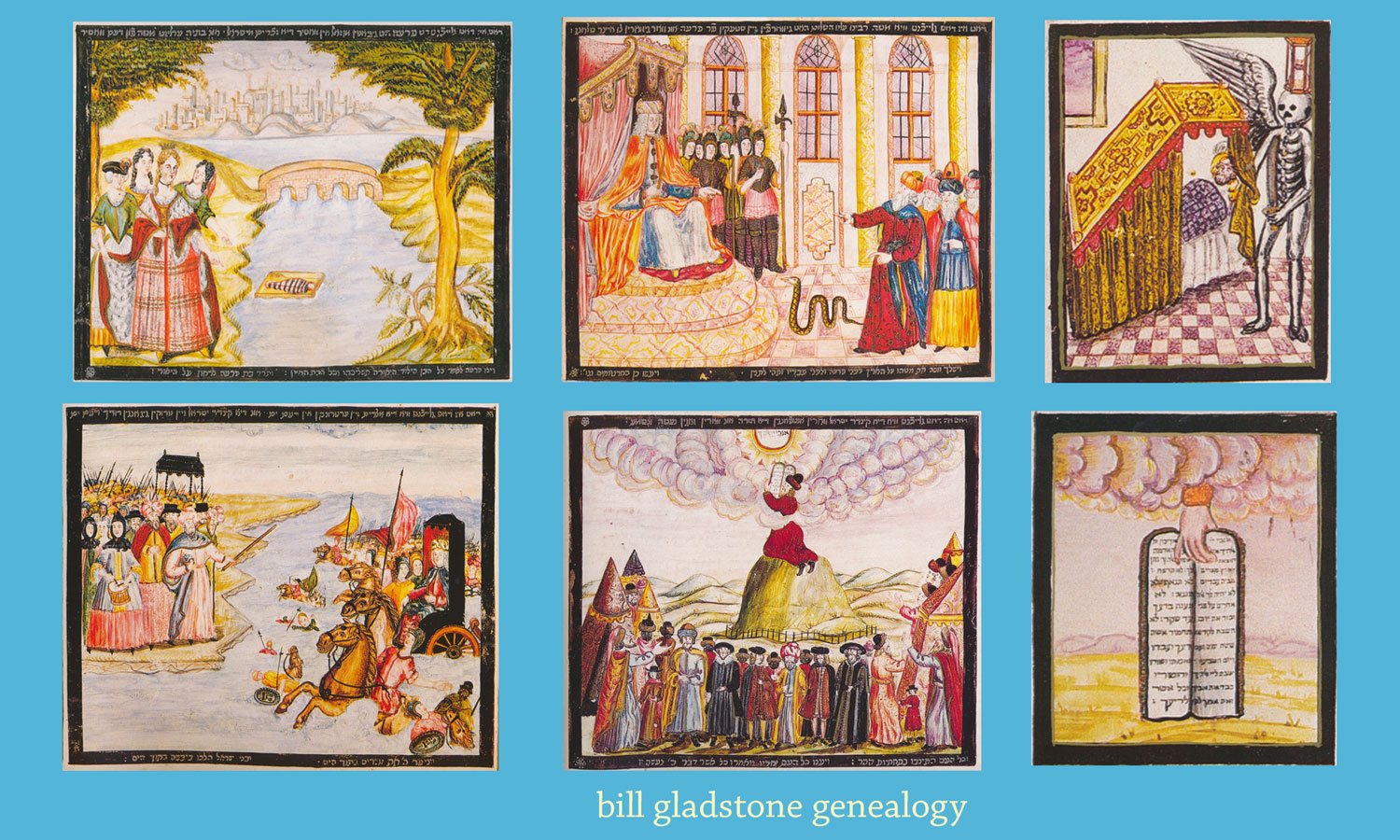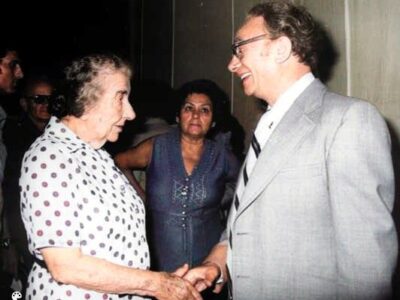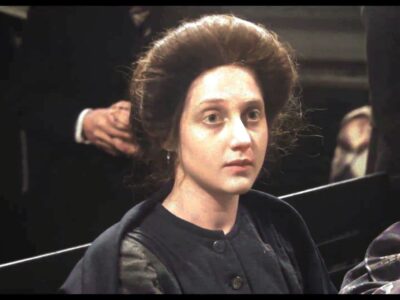Book Review: We Who Wrestle With God (2024)
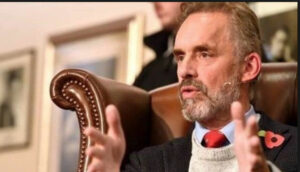 Almost a decade ago, Jordan Peterson listened to his own “still, small voice” and decided to take a strong moral stand, come hell or high water.
Almost a decade ago, Jordan Peterson listened to his own “still, small voice” and decided to take a strong moral stand, come hell or high water.
Peterson was then a relatively obscure professor at the University of Toronto, who also taught at Harvard. His fierce objection to Bill C-16, which (he asserted) legally compels people to use preferred gender pronouns, was denounced as politically incorrect and hateful by the woke throngs at the university. As unrelenting as the lascivious mob that amassed outside Lot’s door in Sodom, this “herd of independent minds” tried to cancel Peterson and eventually chased him out of the university.
The clash propelled him to a national spotlight and dramatically altered the trajectory of his career — much for the better, in my opinion. Had it not been for his courage to face an angry mob over what he perceived as an indefensive infringement upon free speech, he might never have spiralled upward into a new life as one of the West’s leading intellectuals whose books, podcasts and live lectures have influenced millions of people. He has been a genuine force for good.
To be expected, die-hard progressives and leftist institutions continue to denounce him, almost ritualistically at this point, though many clearly have no understanding of what he does or stands for. (Call it Peterson Derangement Syndrome.) Much to our loss, a renewed round of antagonism towards him from the College of Physicians and Surgeons of Ontario and others contributed to his recent decision to uproot himself from cold woke Toronto for sunnier climes in Florida.
What a shame for Canada! I regard him as a national intellectual treasure comparable to Northrup Frye or Marshall McLuhan, each of whom enjoyed a comfortable tenure at the University of Toronto throughout their days. Peterson’s departure is a singular indictment of the Trudeau “sunny ways” dystopia that will continue to hang like a dark cloud over Canada long after that narcissistic, intellectual weakling finally departs the scene.
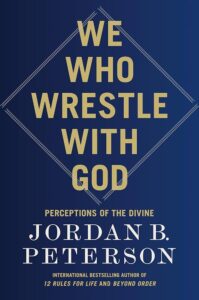 Throughout all of his various tribulations, Peterson has become a prolific contributor to YouTube and the Daily Wire, and has written and published numerous books that have had significant impacts upon our culture. His latest – We Who Wrestle with God: Perceptions of the Divine — appeared late in 2024, and is a weighty tome both in terms of content as well as size (544 pages).
Throughout all of his various tribulations, Peterson has become a prolific contributor to YouTube and the Daily Wire, and has written and published numerous books that have had significant impacts upon our culture. His latest – We Who Wrestle with God: Perceptions of the Divine — appeared late in 2024, and is a weighty tome both in terms of content as well as size (544 pages).
It is not for the faint of heart, but will prove rewarding to those who persevere. I liken the reading experience to having to hack through a 100-year-old thicket to reach the fairy-tale castle within, and the beautiful sleeping princess who will be awakened with a kiss from you.
In its nine chapters, We Who Wrestle with God focuses chronologically on many key moments and personalities of the Biblical narrative, from the first creative spark of God in Genesis, through Adam and Eve, Cain and Abel, Noah, the Tower of Babel, the patriarch Abraham, Moses and Jonah.
Sparkling insights shine like rubies throughout the prose and will reward the intrepid adventurer into these pages. For instance, a foreword that focuses on the prophet Elijah and the “still, small voice” (1 Kings 19:11-12) posits that “God is not in the wind, no matter its ferocity, nor in the earthquake, regardless of its magnitude, but is something within; the voice of conscience itself; the internal guide to what is right and wrong; that autonomous spirit that resides in each soul and shames us before ourselves, draws attention to our shortcomings and sins, and generates the impulse to repent, apologize, and atone.
“This is a discovery [Peterson continues] of unparalleled magnitude: the possibility of establishing a relationship with God by attending to conscience.”
That autonomous spirit that resides in each soul is further discussed in Chapter One, when Peterson focuses on the creation of human beings “in the image of God.” That idea, he sagely asserts, is a notion “both unlikely and significant beyond measure” for it acts as “the very foundation of the Judeo-Christian tradition.” It also generates a moral code, adherence to which lifts up human societies, and neglect of which, as in the story of the Tower of Babel, heralds their eventual downfall.
Not surprising for someone as well read as he, Peterson has an acute appreciation for the Bible and its extraordinary progression of stories through which a person can derive meaning, value and purpose in life. “The world has to be filtered through the mechanism of story to become comprehensible…,” he writes, “because the world is simply too complicated to attend to and to navigate within, in the absence of aim and character.”
We Who Wrestle with God is a complex work that cannot be adequately reviewed in a mere page or two. It is a large and significant achievement that yet could have been improved through more relentless editing: every once in a while, frustratingly dense thickets of language required me to reread a passage several times, and not always did I emerge from this exercise with a clear meaning.
What I loved most about this book is the absolute reverence, thoughtfulness, sensitivity and respect Peterson shows towards the Sacred and our Judeo-Christian sacred texts, and his explanation of the necessary onus this imposes upon us to live productive lives of sacrifice and meaning. ♦
